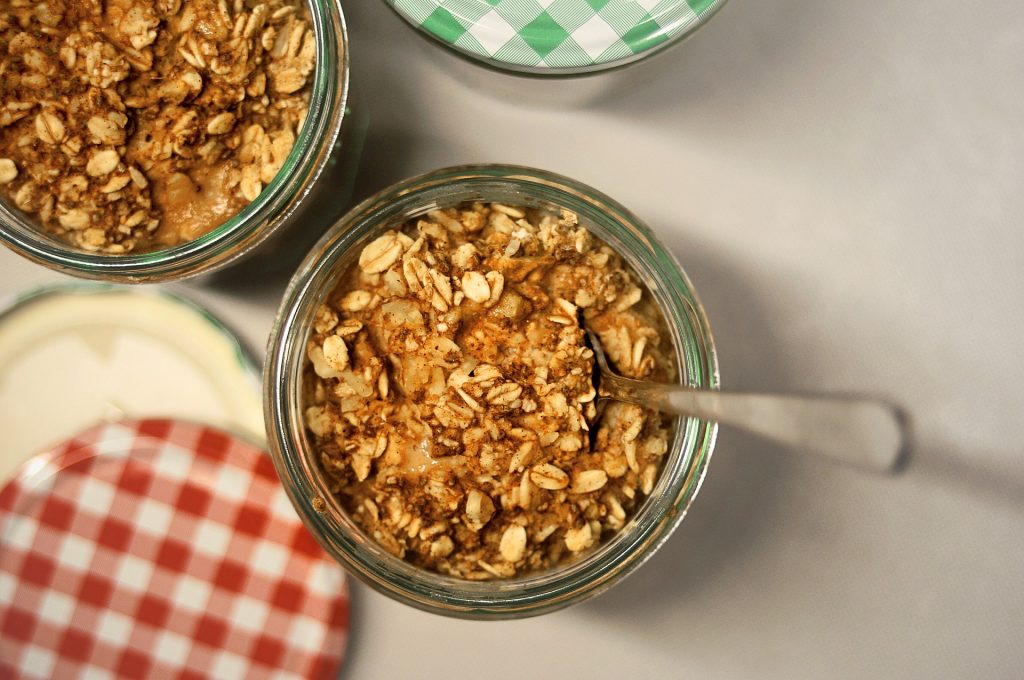Irritable Bowel Syndrome, or IBS, is a common, frustrating condition that can be hard for individuals. There may not be a cure, but there are many things you can do to help manage your symptoms and spend more time enjoying life.

Here are some general strategies that can help:
- Avoid greasy foods and caffeine – these are often poorly tolerated by people with IBS.
- Keep it simple. It can be much easier to identify foods that cause problems when you eat foods that contain only a few ingredients instead of a long list of ingredients.
- Do not overeat. This will cause symptoms for most IBS sufferers even if the foods are “safe”. Have snacks between meals to control hunger and watch your portions.
- If dairy aggravates your symptoms, try alternatives – such as plant-based milks, like almond, rice, or soymilk. Make sure they have added calcium and vitamin D.
- Be careful with foods that commonly cause gas, such as broccoli, Brussels sprouts, cauliflower, cabbage, onions, beans, fruit drinks, and artificial sweeteners.
- Fiber can both improve and aggravate symptoms in all types of IBS. Everyone tolerates fiber differently, but it may help to:
- Focus on soluble fiber. This is found in foods like oats and barley. You can also ask your physician about a soluble fiber supplement.
- Increase fiber gradually and drink plenty of fluid. Too much fiber at once can cause more gas and bloating.
- Be cautious with bran, whole wheat products, raw vegetables, and raw fruit. Some people with IBS can tolerate these very well, but others cannot. If you have trouble with these foods, try oats, brown rice, quinoa, and peeled or cooked fruits and vegetables. Avoid fruits with tough peels or seeds, and instead try bananas, mangoes, cantaloupe, or papayas. It may also help to juice vegetables, blend them into a smoothie, or try them pureed like squash or pumpkin.
- Seek help from your doctor or dietitian, especially if you find yourself avoiding lots of different foods. It is important to balance proper nutrition with symptom management.
Physical Activity
Regular physical activity can reduce stress and improve mood and overall health. Some medications for IBS contribute to weight gain, and physical activity can be a healthy way to control weight. For those who want to gain weight, physical activity can improve appetite and help build lean body mass. It is important to check with your physician to make sure you are okay to exercise and learn if there are any special considerations because of your current health or medications.
Once you are cleared to participate in physical activity, it may be hard to figure out the best approach. If you find it difficult or stressful because of your symptoms, it may help to:
- Join a gym instead of trying to exercise outdoors.
- Start slowly, with low impact activities like yoga, Pilates, tai chi, walking, or swimming.
- Find exercise DVDs at your local library, video store, or online.
- Stay fit by walking regularly in a mall, large store, or local park or natural area with restrooms. Always have toilet paper with you.
- Purchase a new or used treadmill or some weights to use at home.
- Avoid exercising when it is very hot, and make sure to stay hydrated. This is especially important when you have had diarrhea.
- Listen to your body. If you are having severe symptoms or not eating enough to support exercise, you are generally better off resting.
Managing Stress
Stress can make symptoms worse. Reducing stress will not make your condition go away, but it can make your symptoms much better. Here are some ideas:
- Increase your physical activity. Try some of the suggestions listed above.
- Establish a relaxation routine. Practices like yoga and meditation can be great ways to relax. Try a class or visit your local library for a DVD to get started at home.
- Get adequate sleep. – Allow enough time for adequate sleep – avoiding eating or drinking right before bed – and try to establish a relaxing pre-bedtime routine like reading a book or taking a warm bath.
- Reduce stress in your daily life. This may seem easier said than done, but it is important to eliminate unnecessary stress. This may require saying “no” more often or working with your family members or partner to better divide responsibilities. Do your best to build some down time into your schedule every day.
- Seek support. It is important to realize that you do not have to struggle with your condition alone. Managing an IBD in addition to everyday life can be stressful, and it may help to talk with family, friends, or even a psychologist. There are also many support groups and online forums for people with IBS, like www.ibsgroup.org. Just make sure to consult your physician before taking any medical advice.
Did You Know?
Dealing with an inflammatory bowel disease like Crohn’s disease or ulcerative colitis can be stressful and achieving proper nutrition can be difficult. It can be helpful to:
- Identify and avoid problem
foods. - Make nutritious choices.
- Incorporate physical
activity. - Manage stress.

